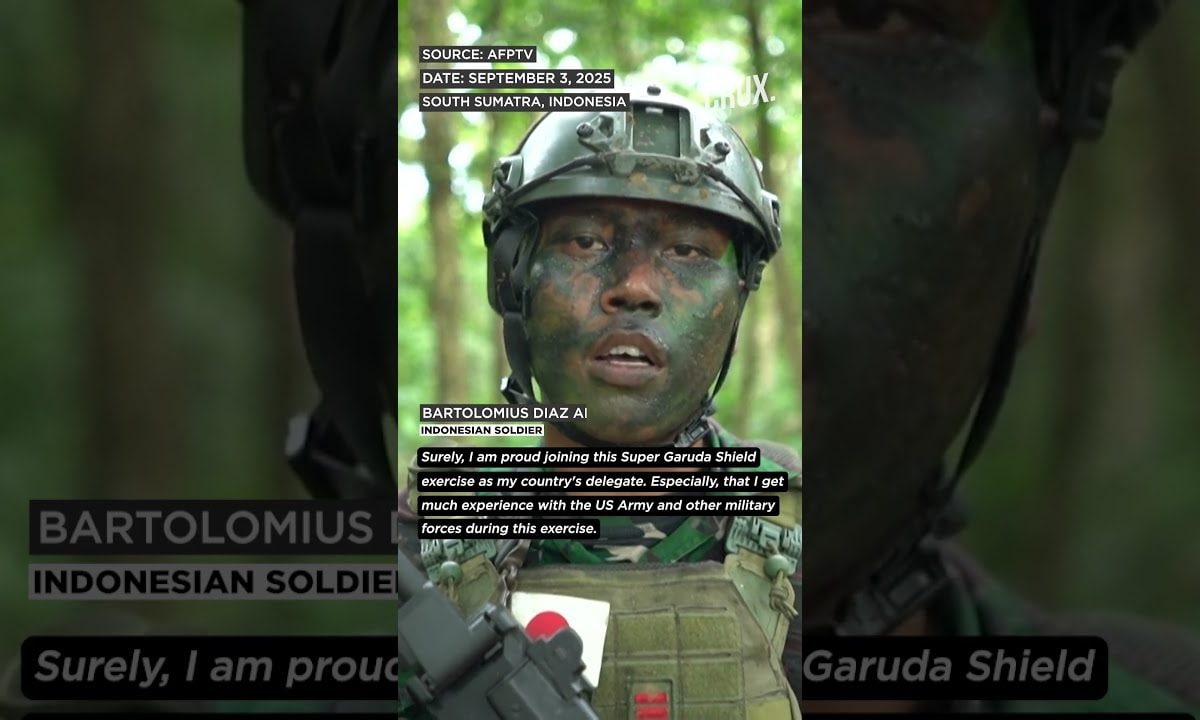'Super Garuda Shield' Drills Amplify Indonesia's Allied Strength
International International NewsPosted by AI on 2025-09-04 13:10:52 | Last Updated by AI on 2025-09-04 15:26:08
Share: Facebook | Twitter | Whatsapp | Linkedin Visits: 0

Indonesia and the US have taken defence cooperation to the next level with the largest-ever "Super Garuda Shield" drills, joined by 11 allied nations. The exercise began on August 24, hosting over 4,100 Indonesian and 1,300 American troops spanning Jakarta, Sumatra, and the Riau archipelago. This was designed to boost stability in the Asia-Pacific region.
Indonesian Lieutenant Expresses Pride:
"I am proud and happy to participate in the Super Garuda Shield exercises... We get a lot of new experiences and knowledge to increase our fighting abilities," said Indonesian Lieutenant Calo Kentim, according to an official statement by the Indonesian Ministry of Defence.
Impressive Scale, Unified Objectives:
This was the ninth iteration of the annual "Garuda Shield" exercises, which began in 2009. While previous editions were mostly confined to Indonesia, this year's expansion to Jakarta and the addition of the USA and other allied nations mark a significant uptick in scale and scope.
The overarching objective? Boost preparedness and interoperability among defence forces in the Asia-Pacific region, according to Indonesian Navy Chief of Staff Admiral Yudo Margono.
Big Brother is Watching:
Notably, surveillance ships from the US, India, and Japan are also participating in the exercises. Indonesia remains wary of assertive behaviour by its neighbours, especially Malaysia and Singapore, feeling that they are closely monitoring its exclusive economic zone, where it has sovereign rights to explore and exploit offshore oil and gas.
Moving Forward:
The four-week drills wrap up on September 24, but the spirit of collaboration is likely to endure. "Super Garuda Shield" has cemented Indonesia's place as a regional defence leader and a proactive collaborator. The next step is to see how these allied parties leverage their joint expertise in future defence initiatives, furthering solidarity and stability in the Asia-Pacific.
Search
Categories
- Sports
- Business
- National
- Investments
- History
- Politics
- International
- Science & Technology
- Social Issues
- Disaster Management
- Current Affairs
- Events & Jobs
- మన పార్టీ
- మన నాయకత్వం
- మన విజయాలు
- డౌన్లోడ్స్
- మీడియా వనరులు
- కార్యకర్తలు
- రాజకీయం
- బిజినెస్
- సంపాదకీయం
- నవ్య
- చిత్ర జ్యోతి
- క్రీడలు
- జాతీయం
- తెలంగాణ
- తాజా వార్తలు
- Fast Check
- South
- Gallery
- Sunday Chronicle
- Hyderabad Chronicle
- Technology & Innovation
- Innovations and Initiatives
- బిజినెస్
- North East Skill Center News
- Government Schemes
- Entrepreneurship Support
- Employment Opportunities
- Skill Training Programs
- Education
- Startup Business
- Startup News
- Awards
- Community Services
- Fundraising Events
- Volunteer Services
- Health Initiatives
- సినిమా
- లైఫ్ స్టైల్
- క్రైం
- ట్రెండింగ్
- జాబ్స్
- అంతర్జాతీయo
- In News
- Banners
- Awards
- Partners
- Products
- Press Releases
- News
- Departments
- Initiatives
- Resources
- Telangana IT Parks
- Press Releases
- News
- Airport News
- Sports
- Business
- Newtons Laws of Motion
- Karbonn in Business
- Investments in Karbonn
- Company quarterly sales
- Markets
- Auto News
- Industry
- Money
- Advertisements
- Stock target
- Company Updates
- Stock Market
- Company Sales
- Staffing and HR
- Constituency Assembly
- General News
- Srikalahasti Temple
- Bojjala Sudhir Reddy
- Products
- Industries
- Services & Trainings
- Tools & Resources
- Technology Integration
- Drug Seizures & Arrests
- Telangana Narcotics
- Law & Enforcement
- Rehabilitation
- Nationwide Drug Policing
- Nigeria Seizures
- Global Operations
- Drug Awareness
- Drug Enforcement Tech
- NCB Drug Seizures
- Judicial Crackdown
- India's Surveillance Tools
- Cross-Border Links
- Women Safety
- Cyber Crimes
- Drug Abuse
- Traffic & Road Safety
- Community Connect
- Public Safety Alerts
- Citizen Assistance
- Nellore City News
- Politics & Administration
- Events & Festivals
- Agriculture & Rural
- Business & Economy
- Health & Wellness
Recent News
- Small-cap IT stock hits upper circuit for 19th straight session following expansion into France
- Experts Looked Closely at THIS Stock, PredictActions by Retail Investors
- Blue Cloud Softech Solutions Hit Upper Circuit Again, This Time Post Q1 Results
- Blue Cloud Softech's Stock Soars After BluHealth V2.0 Launch Aiming to Capitalize on $946 Billion Digital Health Market
- Small-cap stock makes investors happy for 19th day; do you own BCS?
- Analysts Predict Stock Surge for Company's Shares
- Blue Cloud Softech Soars on BluHealth V2.0 Launch, Targeting $946B Digital Health Market
- Sure! Here is a draft of a potential news article with the information provided: